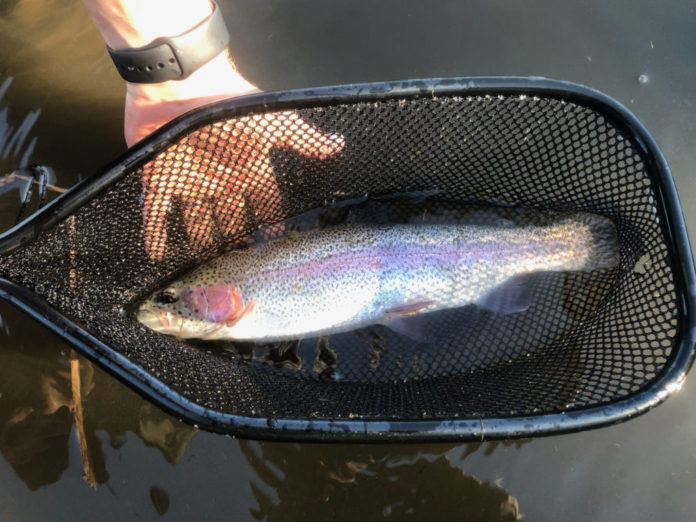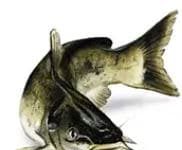Nets of all sizes make landing fish easier, and not having one for a big fish can make things interesting on the water. Simonson Photo.
By Nick Simonson
The things you own end up owning you.
It’s a statement I say every so often in life, as mechanical things break down, technology freezes up, and the piles of day-to-day stuff mount in the corner of the basement storage area. I uttered it at least once this weekend as a summer’s worth of clutter which accumulated between the end of school, road trips, holidays and other adventures was purged from our house and garage or boxed and stashed to be dealt with more permanently somewhere down the road. While finishing up on the far wall beyond the two cars in the garage, however, I looked at the oversized net I had bought for a sturgeon trip which was canceled at the last minute, due to travel restrictions and covid concerns over a year ago.
I didn’t even go near it, as I knew someday, hopefully even next spring, I’d need it for those big fish on the Rainy River once again. It certainly didn’t meet the criteria for the ongoing ousting of unnecessaries.
If you’ll pardon the double negative alliteration, I’ve never not needed a net for fishing. As I stared at the wall, I cycled through that ultimate purchase and all the models I currently own, which do very little owning back of my life, besides perhaps the inch-deep space they occupy on the wall or tucked against the gunwale of the boat. In fact, there’ve been times while fishing – simply out casting around town, targeting panfish, or just not thinking about it on the way out the door – where no net has been at hand, and I sure could have used one.
Whether it was the unexpected large northern pike on a night of walleye fishing, or a rogue trophy bucketmouth during a morning of spring fly fishing for crappies, not having a net often results in memorable and disappointing moments in the outdoors. That half dozen or so nets floating around above the clutter of my life certainly do more good than harm. Though my wife, who once took the handle of one to her eye, requiring stitches, may argue otherwise.
Even those basic models which still hang about, and the larger or more specialized ones I’ve devoted to my various watercraft and fishing styles, serve their purposes well and make grabbing them for a trip easier, providing peace of mind in the limited space I might have on a given adventure. Some like the trout nets I utilize while fly fishing, I’ve found creative methods to move and store, including magnets and carabiners that attach them to the back of my fishing vest or life jacket. Other more standard ones, I am simply able to compress and extend, based on the model. Even at the lake cabin, when I make a run down the shore for a few sunset casts after the spring walleyes that stack up in front of the creek, I’ll grab the well-worn net from the dusty corner of the boathouse, and lay it in the nearby sand, just in case.
Whether it’s the large-basketed model for pike, muskies and sturgeon, the long-handled one which doubles for walleyes from both shore or over the raised edges of the boat, or the rubber meshed model that makes releasing fish and lures like spoons and crankbaits easier, those nets in my possession and scattered about among my watercraft, are all well worth the space they occupy and the minimum maintenance they all require. Of all the fishing things that end up as clutter in the corners of my garage – old rods, spools of line, foam blocks covered in flies and lures – nets do not fall into that category.
While I’m sure one can have too many nets, I don’t know if I’ve hit that threshold yet.
Psychologically, I’m quite certain I never will, as it’s always a good feeling to know one is resting a step away when a big fish is on the line, or the process of landing any finned opponent will be made easier by a net, allowing me to take ownership of any angling scenario, without having to pay a significant price for doing so…in our outdoors.
Credit: Source link































